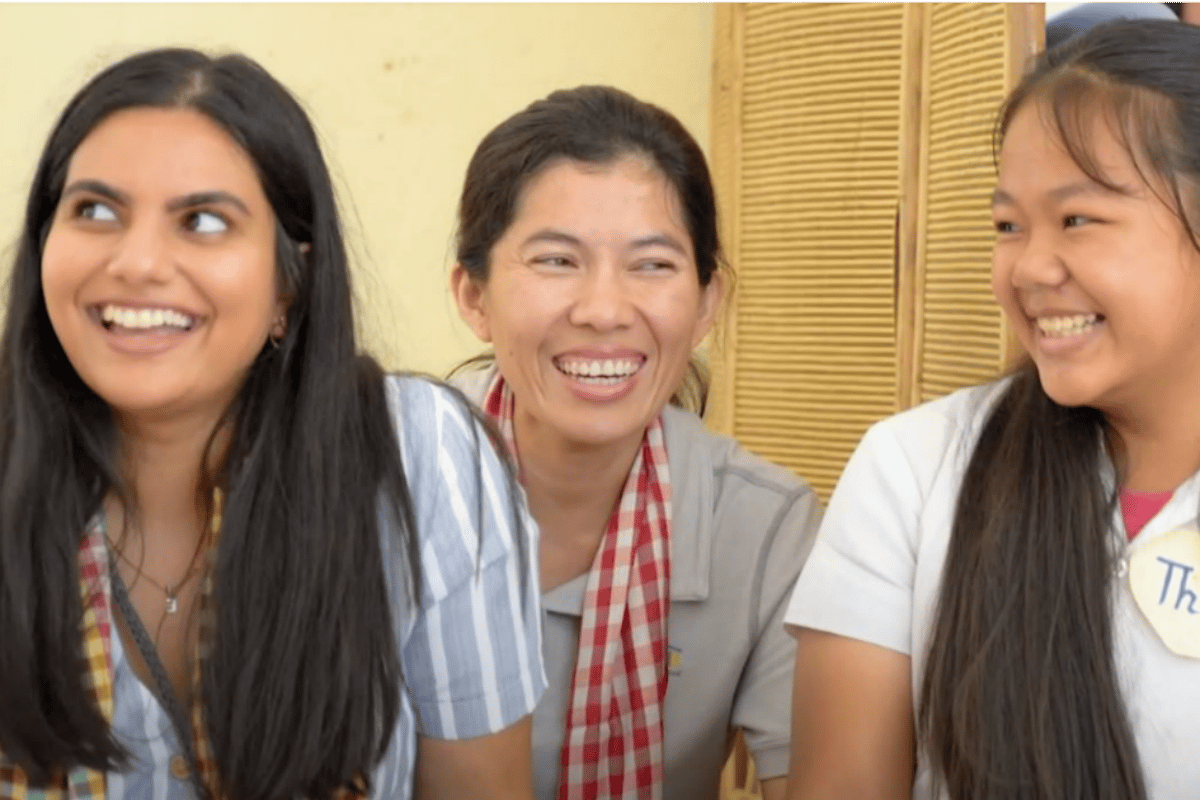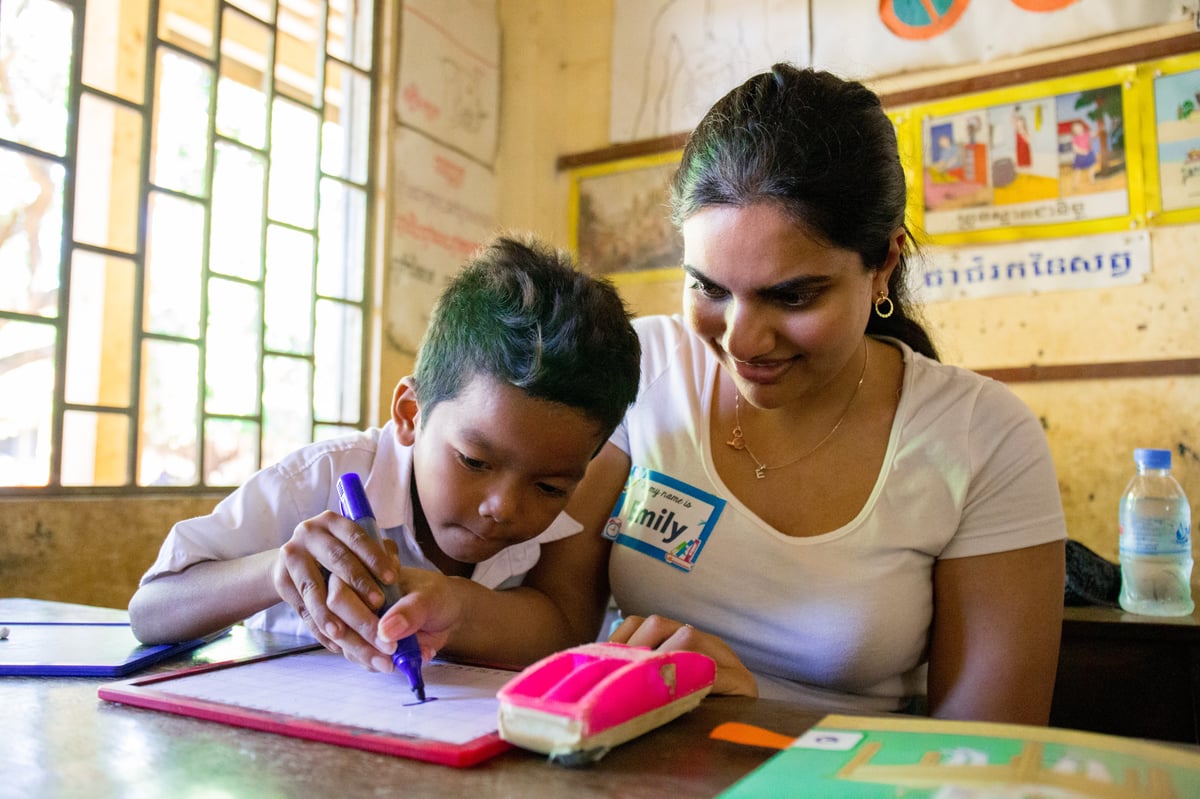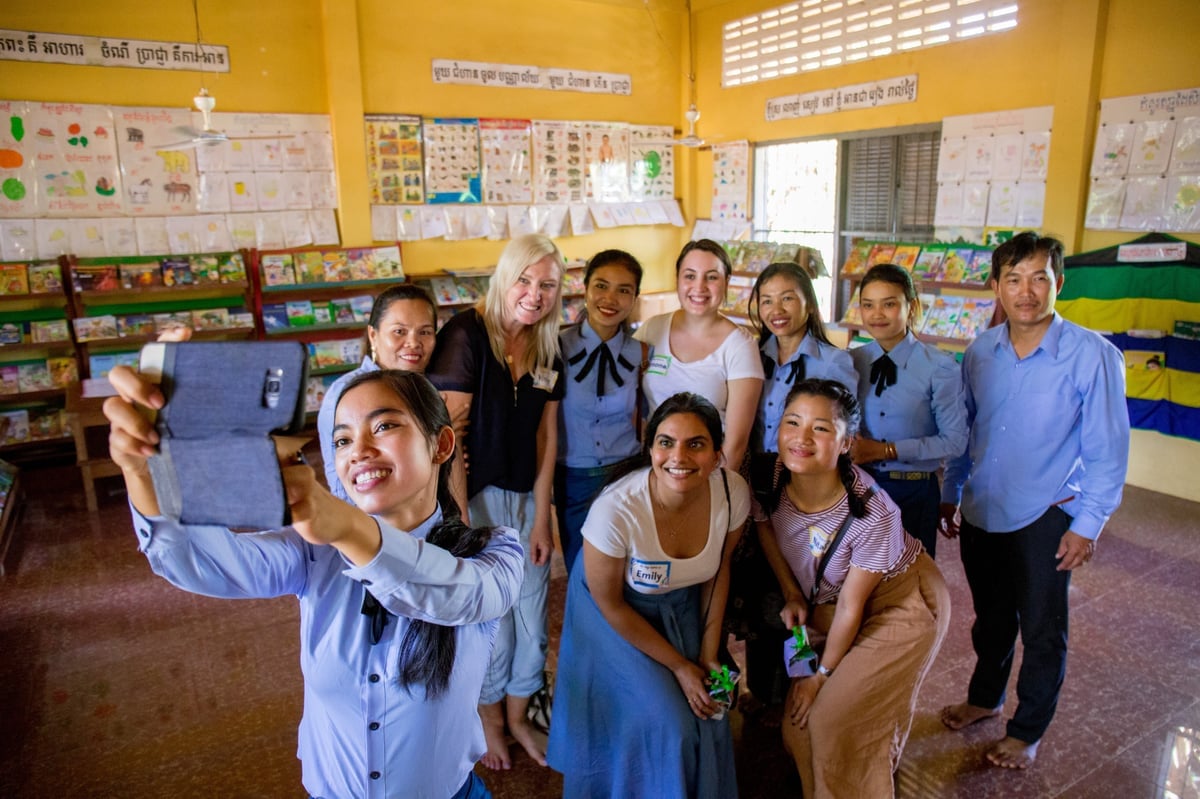
I’m embarrassed to admit that it wasn’t until I travelled to Phnom Penh, Cambodia, that I learnt about the history of what had happened there.
Genocide. Unimaginable brutality. A devastating attempt to re-start history at ‘Year Zero,’ and destroy religion, education, and the acquisition of wealth through a radical communist policy.
The Khmer Rouge, led by Pol Pot, were in power from 1975-1979, and were responsible for the deaths of over two million people. They had wanted to create a “master race” through social engineering, who would work on farms and become self-sufficient. This meant executing enemies of the state – anyone who was educated, or even appeared educated, by wearing glasses or speaking a foreign language. Being educated was terrifying to the regime. These were the people they anticipated would challenge the ideas of the Khmer Rouge, and ultimately stage a revolution.
Now, 40 years later, Cambodia has had to rebuild itself from the ground up. And education is more important than ever.
Watch: What Mamamia learnt in Cambodia. Post continues after video.




